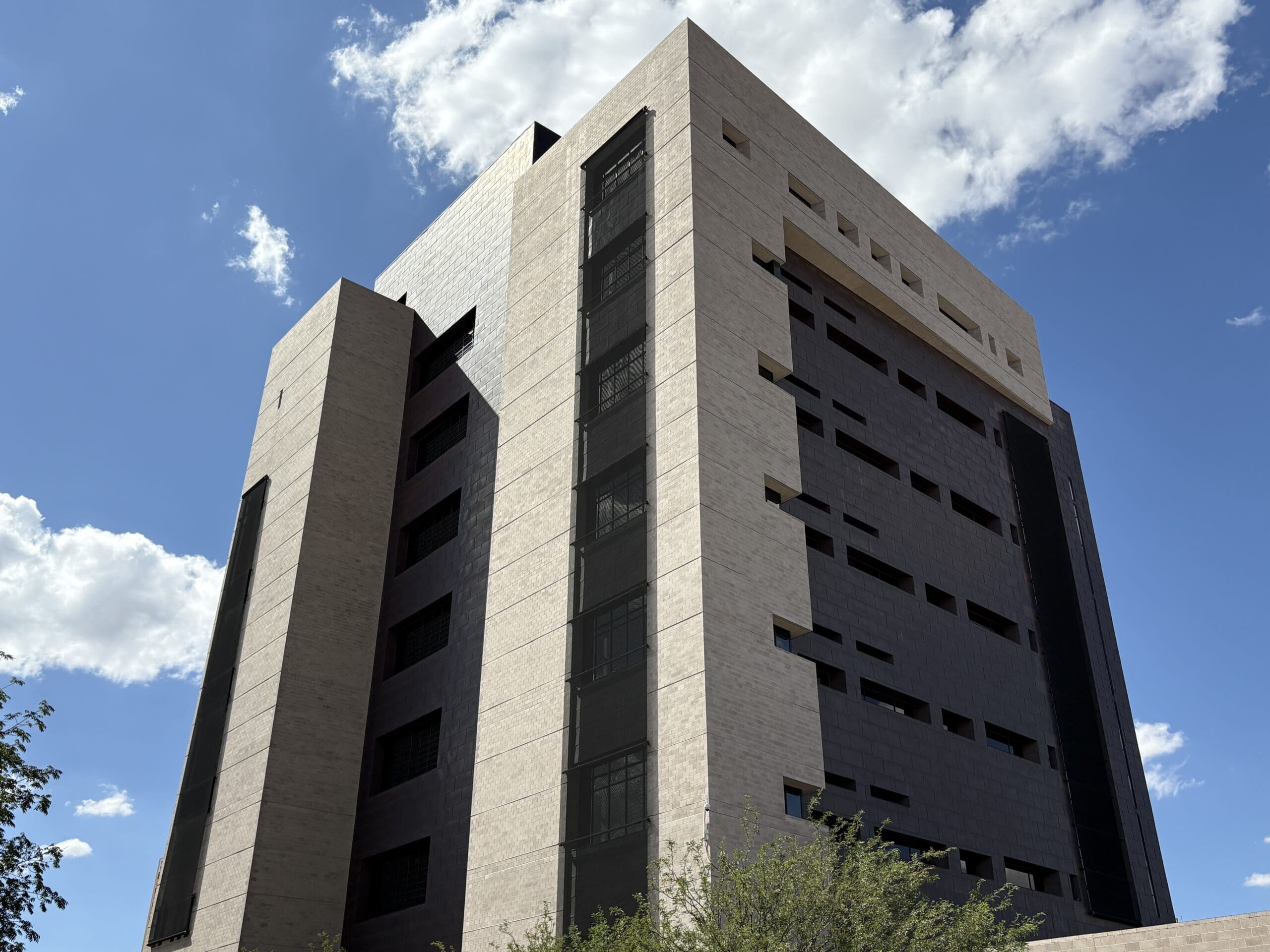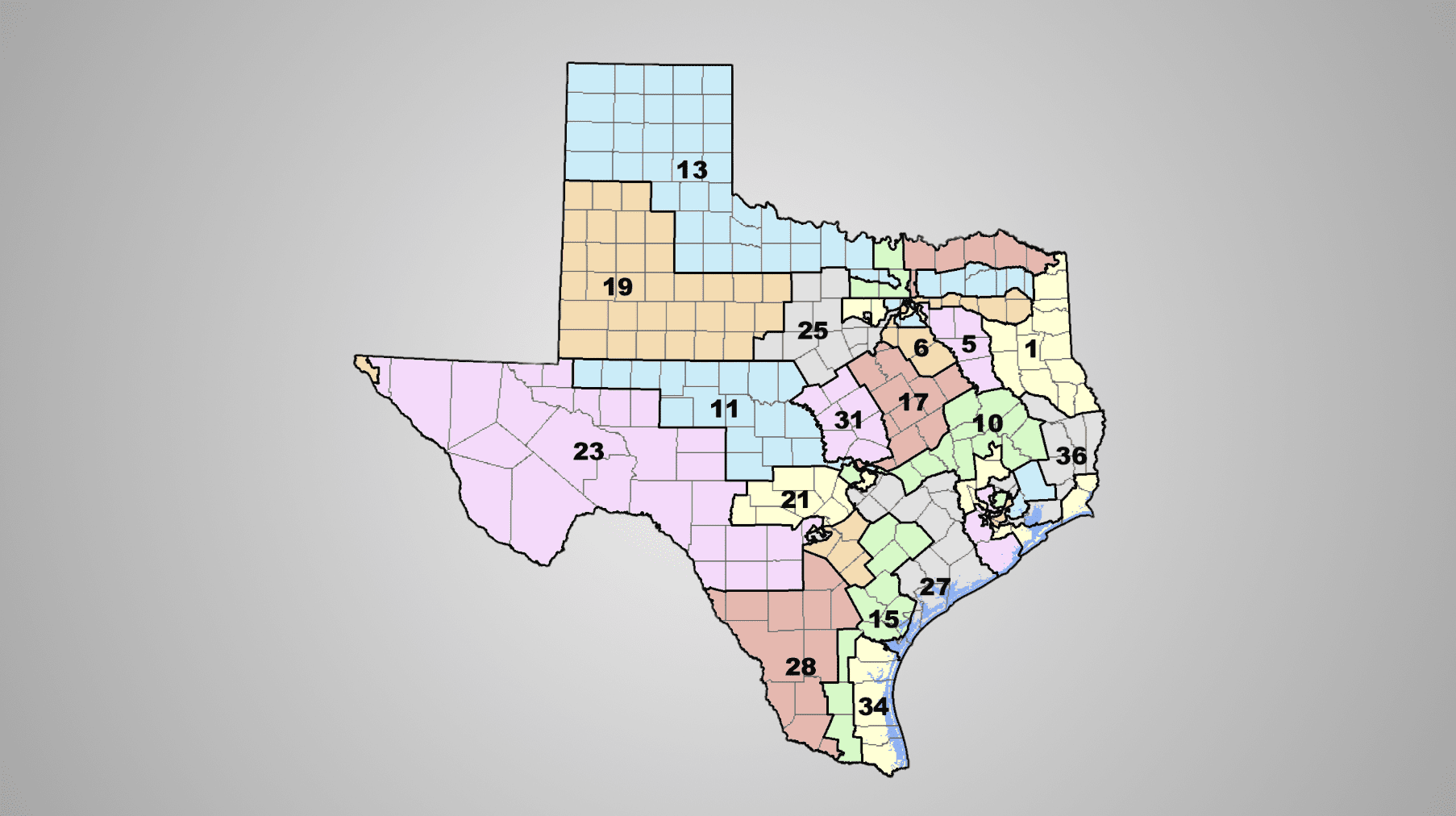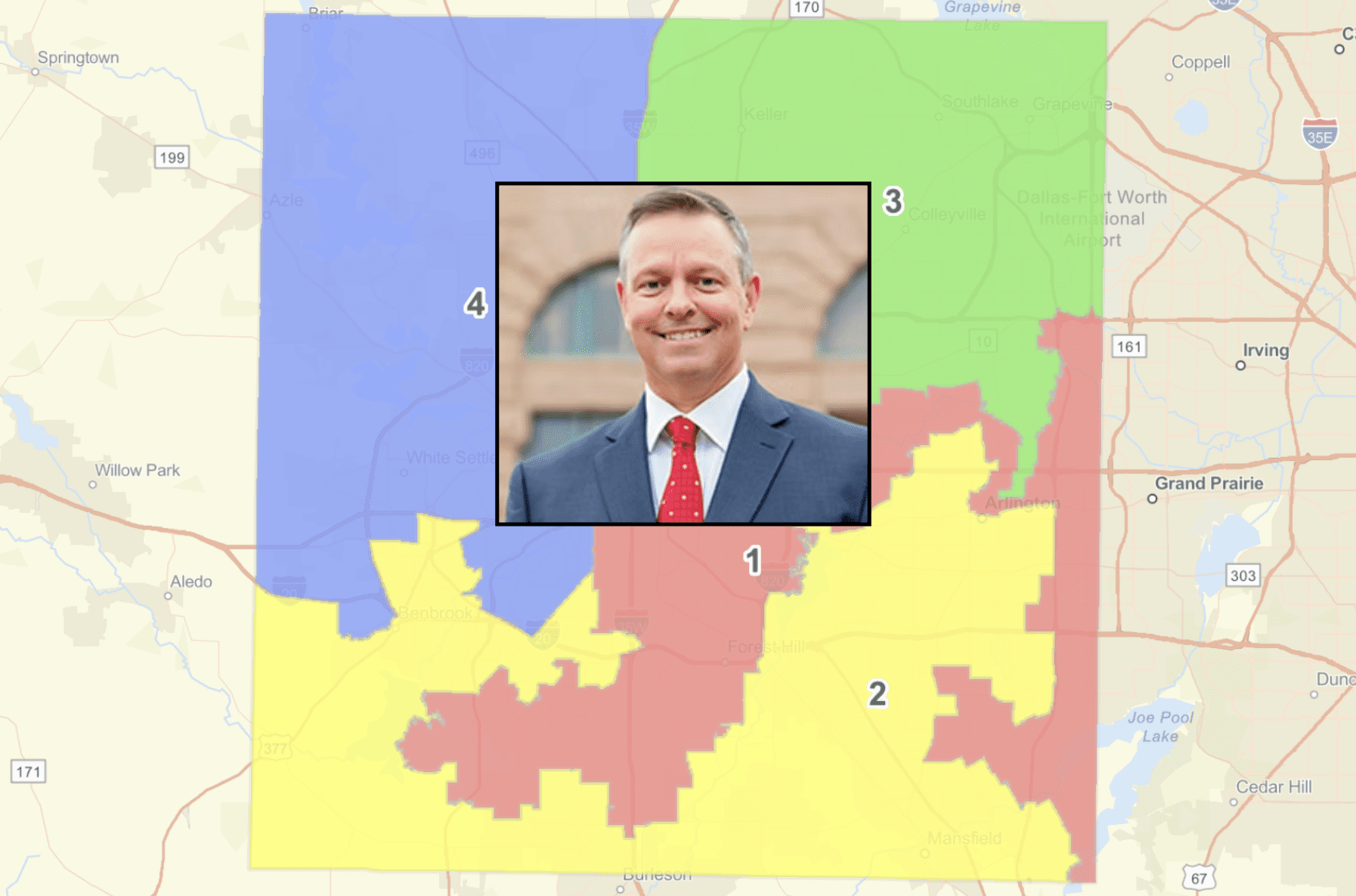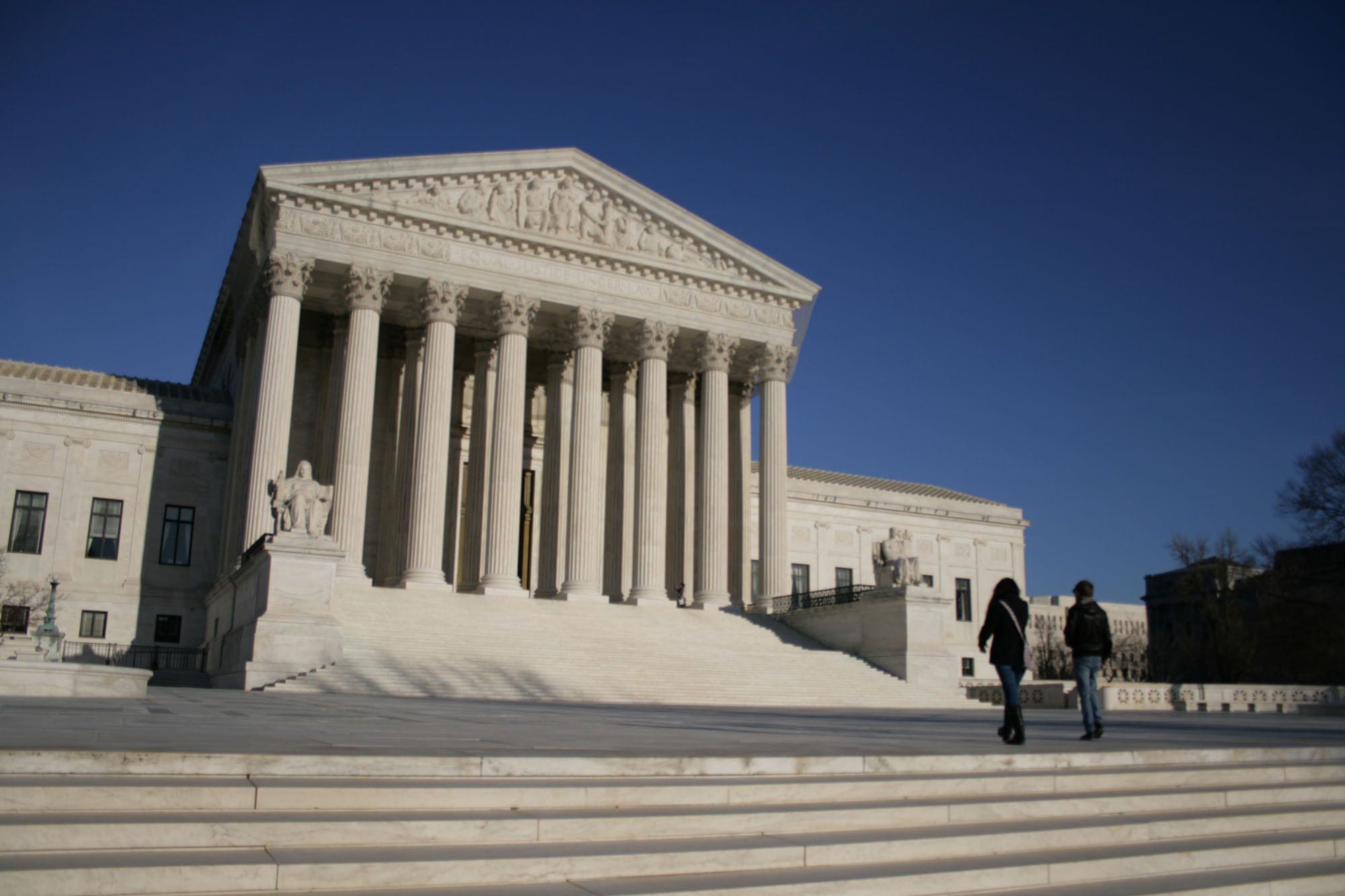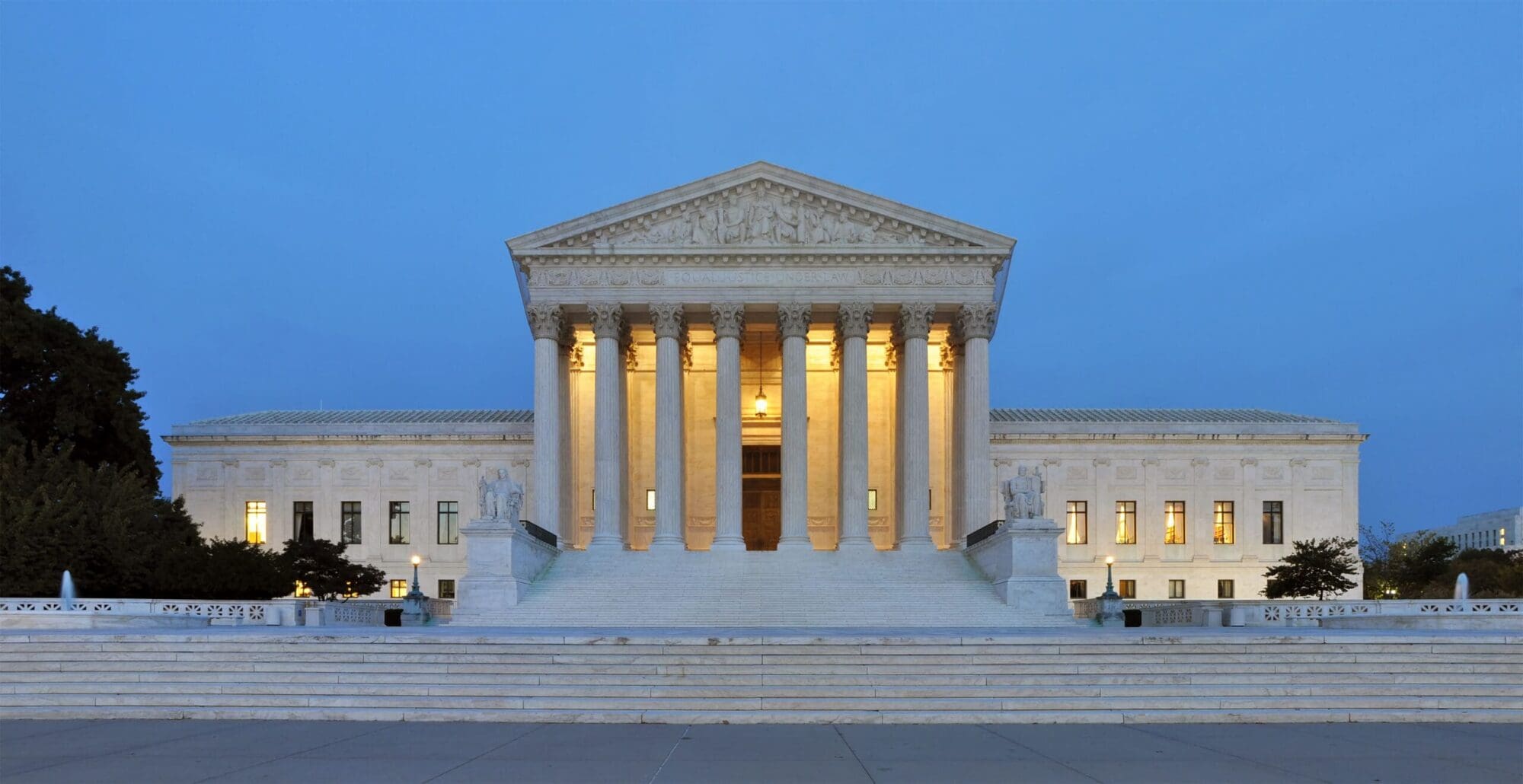EL PASO—On the eighth day of Texas’ ongoing high-profile redistricting trial, proceedings centered on the testimony of Dr. Jeffrey Lewis, an expert witness for the State, and two lawmakers in charge of the redistricting process.
At issue is Texas’ latest congressional map, which creates five new GOP-opportunity districts. The case will determine whether Texas’ new boundaries are used in the 2026 midterm election.
Plaintiffs suing over the map include the League of United Latin American Citizens (LULAC), the National Association for the Advancement of Colored People (NAACP), the Mexican American Legal Defense and Educational Fund (MALDEF), and the Mexican American Legislative Caucus (MALC).
The Plaintiffs’ have argued that Texas’s latest legislative maps discriminate against minority voters. However, the State contends the process was strictly guided by partisan objectives.
Dr. Lewis’ Testimony
The Plaintiffs presented data that had been omitted from Dr. Lewis’ report, which suggested that black and Hispanic voters overall are less likely to elect their candidates of choice under the new congressional map.
Dr. Lewis dismissed the implication that this omission was due to it being favorable to the Plaintiffs’ case. Rather, he said it was an obvious statistic given that minority groups still tend to favor Democrats, and the redistricting effort seeks to flip five Democrat seats to Republican.
Dr. Lewis’ core finding was that black and Hispanic Democrats are nearly as disadvantaged as white Democrats under the new maps, while black and Hispanic Republicans are notably more advantaged than white Republicans. He argued this distinction was central to understanding the actual partisan, rather than racial, impact of the newly drawn districts.
The Plaintiffs suggested that Dr. Lewis’ reliance on data provided by other experts might undermine the credibility of his analysis, as he did not independently verify all referenced data. Lewis acknowledged his sources and their scope in his report, and the Plaintiffs lodged no substantive challenges regarding the integrity of this external data.
On direct examination, the State referenced a prior case in which Dr. Lewis’s expert report ran counter to the interests of his client. Lewis explained that he did this “because it’s the truth,” a statement the State offered as evidence of his credibility and integrity.
As the morning concluded, the Plaintiffs emphasized that Dr. Lewis was only one of five expert witnesses called in the trial—most of whom had been brought by the Plaintiffs themselves. They pressed Lewis to affirm that, even if the court accepted all of his analysis, it would constitute no more than 20 percent of the trial’s overall expert testimony.
Senator King Returns for Cross-Examination
State Sen. Phil King (R–Weatherford), the chair of the Senate redistricting committee, resumed his testimony, which began earlier in the week.
King’s direct and cross-examination have focused on the partisan nature of the redistricting process and his account of how the new congressional boundaries were drawn following federal pressure for additional Republican districts.
During his cross-examination, gaps were highlighted regarding his familiarity with the early stages of the map-drawing process, despite the Plaintiffs insisting that his sponsorship of the Senate bill should make him an expert on every detail.
King clarified that Lt. Gov. Dan Patrick directed the House to take the lead, so he largely observed the process rather than drove it, though he did communicate several times with Adam Kincaid, the mapmaker.
The Plaintiffs focused on inconsistencies between King and Kincaid’s accounts, especially regarding their third documented conversation.
According to King, he had called Kincaid to confirm he was not considering racial data while creating the maps, addressing Democrat lawmakers’ concerns. Kincaid, meanwhile, recalled King calling to ensure Kincaid received an invitation to testify on the Senate floor—a promise King had made to a Democrat colleague.
King denied this, stating the invitation was sent only via email, not by phone. He appeared to have forgotten about following up, just as Kincaid did not initially mention King’s question about racial considerations—but did briefly mention this later in his testimony.
Further minor discrepancies arose regarding a brief meeting at an American Legislative Exchange Council conference. King said he instructed Kincaid not to share details about the map, while Kincaid recalled King asking whether there were actually five districts being flipped. King was also unable to recall State Sen. Adam Hinojosa’s presence during this conversation until prompted.
The Plaintiffs attempted to use these inconsistencies to suggest malice, but the disparities involved recollections of minor events and do not meaningfully advance the allegations being made against the redistricting process.
King clearly stated that he did not take race into consideration and had attorneys analyze the bill to ensure it complied with the law.
King added that he does not believe he is obligated to preserve majority-minority districts and sees no compelling reason to consider racial data in redistricting, referencing the Supreme Court’s Rucho decision as support for a race-blind approach.
He was then questioned by Plaintiffs’ attorney Gary Bledsoe about ignoring testimony alleging racial discrimination during public hearings. King responded that no evidence was presented during the hearings that suggested the maps were illegal, nor were any amendments or alternative maps submitted for consideration.
King dismissed claims that there was not enough time to submit amendments, noting that Legislative Counsel routinely produces such alternatives on short notice.
Rep. Vasut Testimony
State Rep. Cody Vasut (R–Angleton), chair of the House Redistricting Committee, also testified that the Department of Justice letter—which was cited in Gov. Greg Abbott’s initial justifications for redistricting—played no role in his or other Republicans’ decisions when voting on the map.
Vasut pointed out that while the governor referenced the DOJ letter during the first call for a special session, it was left out of the second call. He said it would be inappropriate to use the first call’s justification for redistricting.
He denied any knowledge of Abbott’s intentions, joking about not even knowing what’s in his wife’s head, and appeared confident throughout his testimony.
Humor briefly lightened the proceedings when Vasut described Congressional District 35’s shape as a “rhomboid,” prompting the court and Judge Jeffrey Brown to google the term’s meaning—and in fact, CD 35 is not a rhomboid.
The State’s last expert witness, Dr. Sean Trende, then began his testimony, critiquing Plaintiffs’ expert Dr. Matt Barreto’s analysis. This concluded Thursday’s proceedings, as Dr. Trende will continue his testimony on Friday—the final day of the trial.
The three-judge panel will then decide if Texas’ new map will stand for the 2026 midterm elections. Appeals are expected regardless of the judges’ decision.
Day 7 Trial Coverage
Day 6 Trial Coverage
Day 5 Trial Coverage
Day 4 Trial Coverage
Day 3 Trial Coverage
Day 2 Trial Coverage
Day 1 Trial Coverage
No ads. No paywalls. No government grants. No corporate masters.
Just real news for real Texans.
Support Texas Scorecard to keep it that way!
